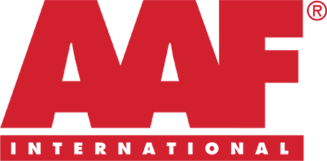
Indoor Air Quality (IAQ) is of Primary Concern
In commercial office buildings, Indoor Air Quality (IAQ) is a primary concern. IAQ refers to the indoor air breathed in by a building’s occupants. The pollution levels in this indoor air can be up to five times higher than outdoor levels, and poor IAQ ranks as one of the top five environmental risks to public health.
The Air Inside Your Building Can Contain:
-
Molds, spores, pollens
-
Carbon monoxide, radon, volatile organic compounds (VOCs)
-
Bacteria, viruses and byproducts
-
Vehicle engine exhaust, exhaust from industrial plants
-
Asbestos, clays, elemental particles and man-made fibers
Extensive Studies Show:
34% of American workers feel that
poor IAQ had caused them to miss work
For every 1,000 workers,
56% of commercial maintenance teams actually admit that their
Optimizing Air Filter Related Spending
Air filtration systems in these facilities must handle relatively large volumes of air as well. Approximately 50% of a building’s energy consumption goes to the heating, cooling, and moving of air. In considering the Total Cost of Ownership (TCO), it is important to keep in mind that in order to have a cost-effective building, planning maintenance is an important step in maintaining energy efficiency, minimizing costly downtime, and extending the lifespan of your equipment.How We Can Help You
A thorough air filter audit of your HVAC Systems is the first step that AAF takes, in order to provide you professional guidance and analysis for cost savings and liability reduction. By conducting this audit, we strive to understand your current state and your complete air filtration needs, applications, and goals for total air quality. This customized air filtration survey costs you nothing and could give you significant benefits by helping you save money, reduce risk, and save time.AAF can also assist you in the processes required to earn Leadership in Energy and Environmental Design (LEED®) credits. The LEED Green Building Rating System™, administered by the U.S. Green Building Council, is the nationally accepted benchmark for designing and sustaining green buildings.
Proper Air Filtration Strategies Contribute to Four of the Six LEED Credit Categories:
- Energy and Atmosphere (Efficiency)
- Indoor Environmental Quality
- Materials and Resources
- Innovation in Design/Operations
AAF’s expertise in airborne particulate and gaseous filtration systems, combined with our innovative product line, uniquely qualifies us to assist you throughout the LEED® accreditation process.



